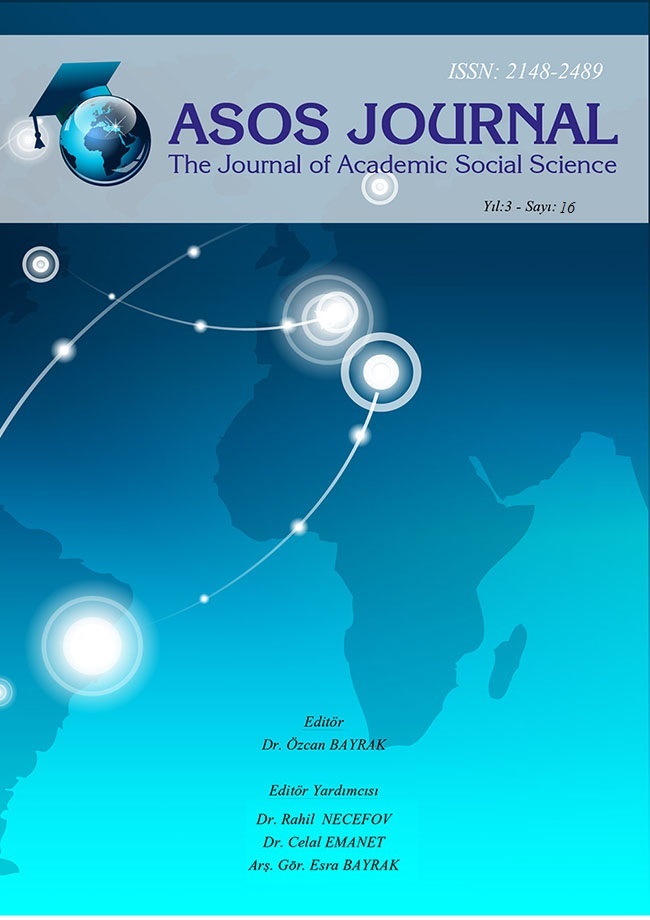Author :
Abstract
Türkiye, bulunduğu coğrafi konum ve stratejik özelliklerinden dolayı, dünyada olan gelişmelerden ve değişimlerden en fazla etkilenen ülkelerden biridir. Nasıl ki II. Dünya savaşı sonucunda iki kutuplu bir dünya oluşunca, komünist blokla çevrili olan Türkiye, oluşumdan oldukça etkilenmiş, yerini belirlemek için çaba sarf etmiş, Sovyetler Birliği’nin tehditkâr tutumuyla kendisini Batı Bloğunda NATO şemsiyesi altına sokmak için gayret göstermişse, İki kutuplu dünyanın yıkılmasından da oldukça etkilenmiştir. Sovyetler Birliği’nin dağılmasının akabinde Yugoslavya’daki problemlerin patlak vermesi ve Bosna Savaşı’nın başlaması, Türkiye’nin, iç siyasi baskıların da etkisiyle, dini, kültürel ve tarihi bağları olan bölgeyle ilgilenmesini zorunlu kılmıştır. Çalışmamızda Türkiye’nin 1990’ların başlarındaki durumu, Yugoslavya’nın parçalanmasına karşı tutumu, Bosna savaşına yaklaşımı incelenmiştir.
Keywords
Abstract
Because of its geographical position and strategic characteristics, Turkey is one of the countries affected by the development and changes in the world. With the formation of a bipolar world as a result of World War II, Turkey, surrounded by the communist block, was greatly influenced by this formation and made great efforts to determine its location. Together with the Soviet Union's threatening approach, it tried to put itself under the umbrella of NATO in the West Block and was also heavily influenced by the collapse of bipolar world. After the seperation of the Soviet Union, the problems occured in Yugoslavia and the Bosnian War began. With the effect of the domestic political pressures as well, Turkey has to be interested in the area since it had religious, cultural and historical ties. This article examines the situation of Turkey in the beginning of 1990s, its approach to the disintegration of Yugoslavia and Bosnian War.





